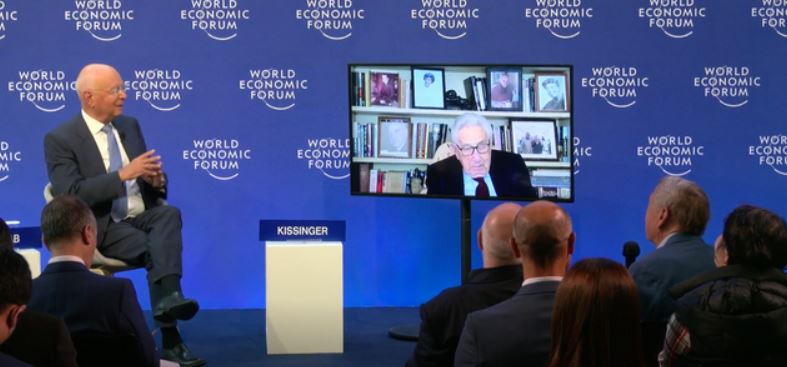A regular economic forum was held in Davos, Switzerland last week. This conference has long been not so much economic as political, and it is natural that the central topic of the meeting was Ukraine. In that sense, of course, Henry Kissinger’s speech was remarkable. The former US Secretary of State, who turned 99 recently, is a supporter of a realistic, pragmatic policy. In particular, he was the architect of the rapprochement between his country and China in the 1970s, a step that certainly strengthened his country and weakened the Soviet Union.
Speaking at the Davos Forum, Kissinger offered Russia to curb its imperial ambitions and Ukraine to make de facto territorial concessions, agreeing to a peace in the context of the status quo, that is, in the post-war (February 23) situation, without part of Crimea and the Donetsk and Luhansk regions. The former secretary of state also urged the West not to try to fight Russia through Ukraine. Let me remind you again that Kissinger is not a friend of Russia at all; he is in the interests of his country, which, in his opinion, presupposes a “freezing” of the war in the coming months. Why he thinks so is a separate topic of conversation. In any case, humanism has nothing to do with this.
Kissinger’s speech was, of course, received very negatively in Ukraine. In an interview, Ukrainian political scientist Vasily Kulik, commenting on the fact that 82% of the population of his country is not ready for any territorial concessions, said that the people of Ukraine are ready for long-term deprivation. For his part, the political scientist added that the victory for the Ukrainians will be not only the liberation of the whole country, but also the disintegration of Russia as a state. As they say, wishful thinking in its purest form. I hope the Ukrainian government does not think so.
Read also
Is Kissinger suggesting the right way or the wrong one? But another circumstance deserves attention.
Over the last few decades, the changing US government has taken into account the analysis of the former Secretary of State, thinking about what he said. Unlike in Armenia, where the current government may not know what they think, say, Vartan Oskanian, Jirayr Liparityan, or Shavarsh Kocharyan, while the post of a woman not so well known to the public becomes a subject of debate in parliament.
Aram Abrahamyan























































